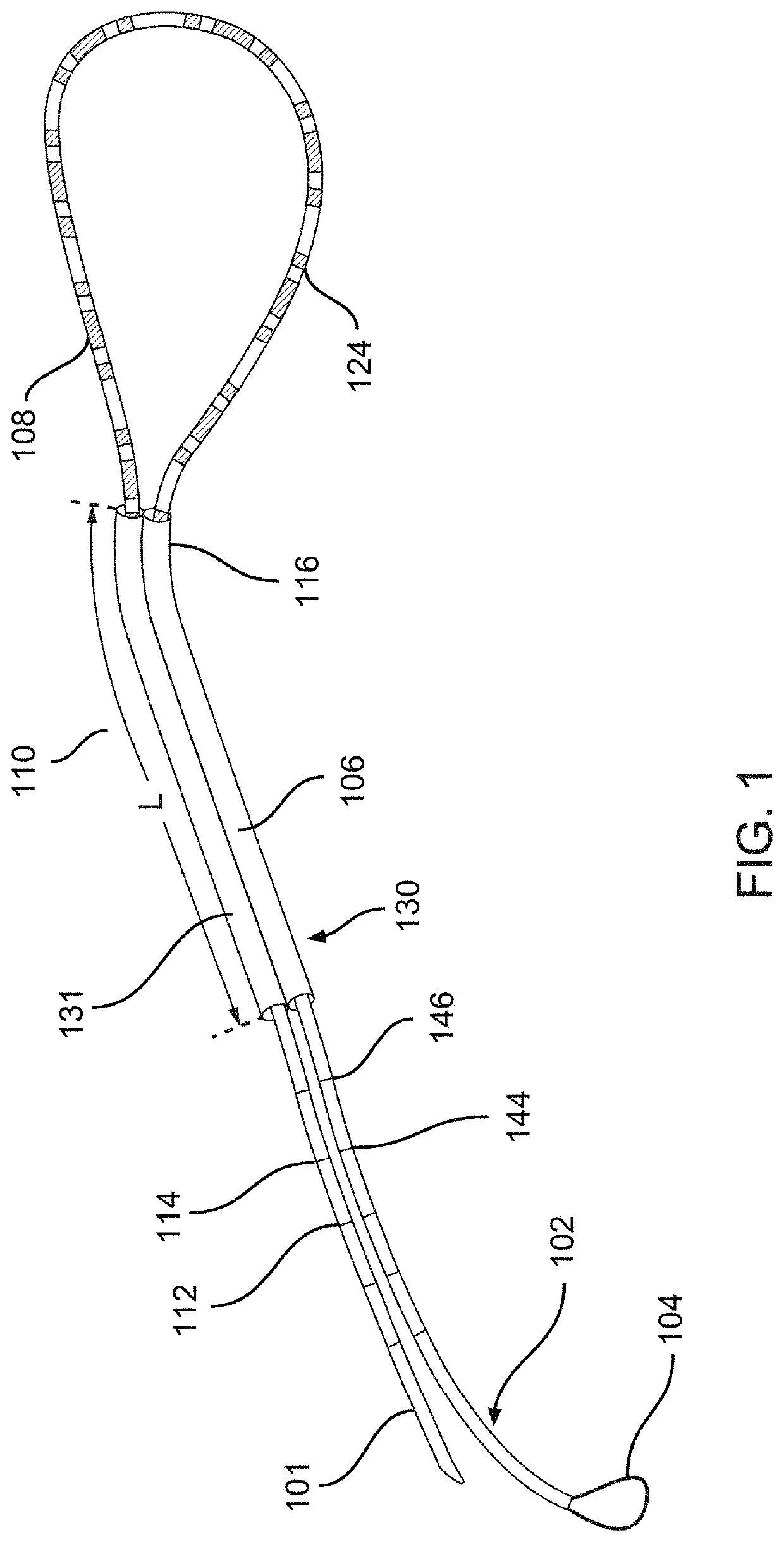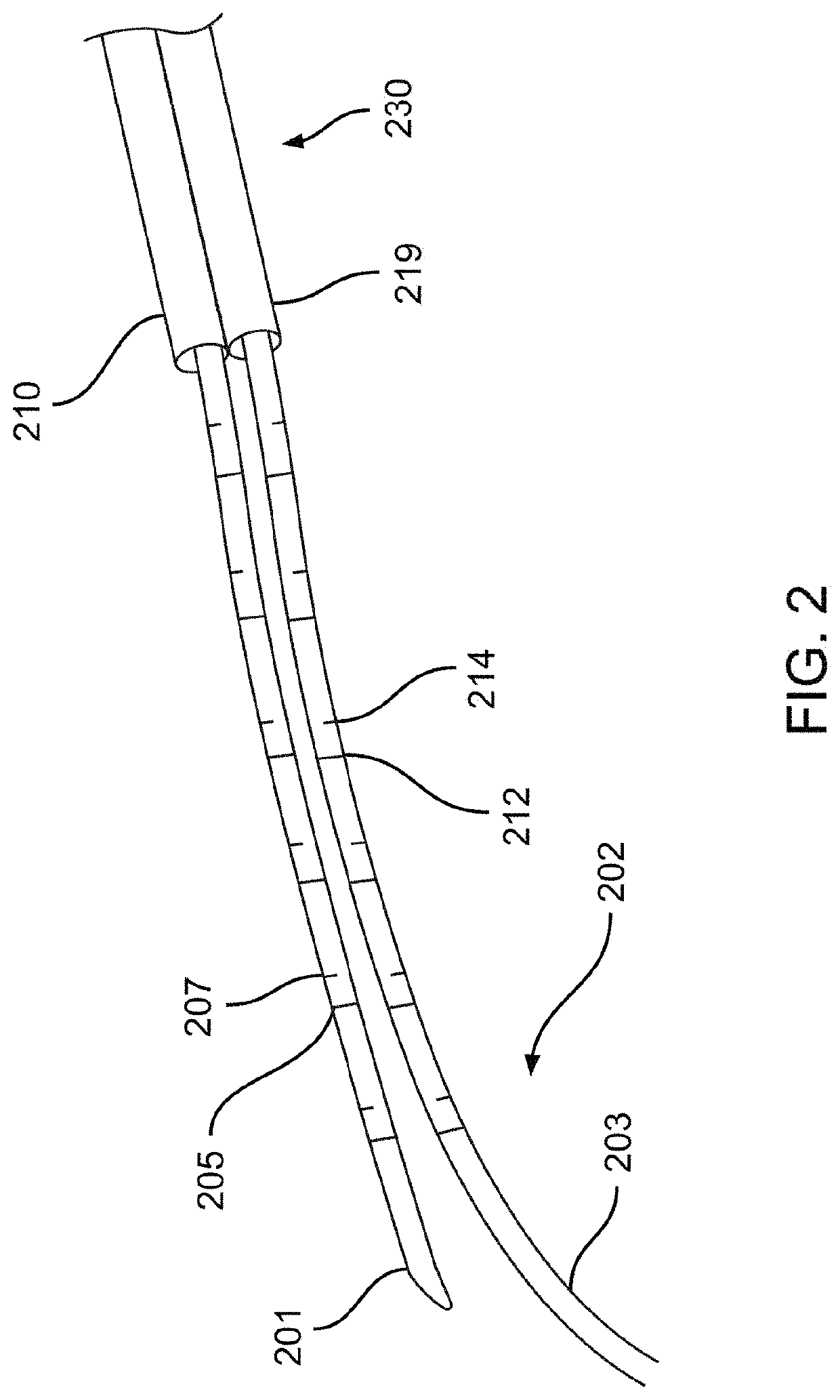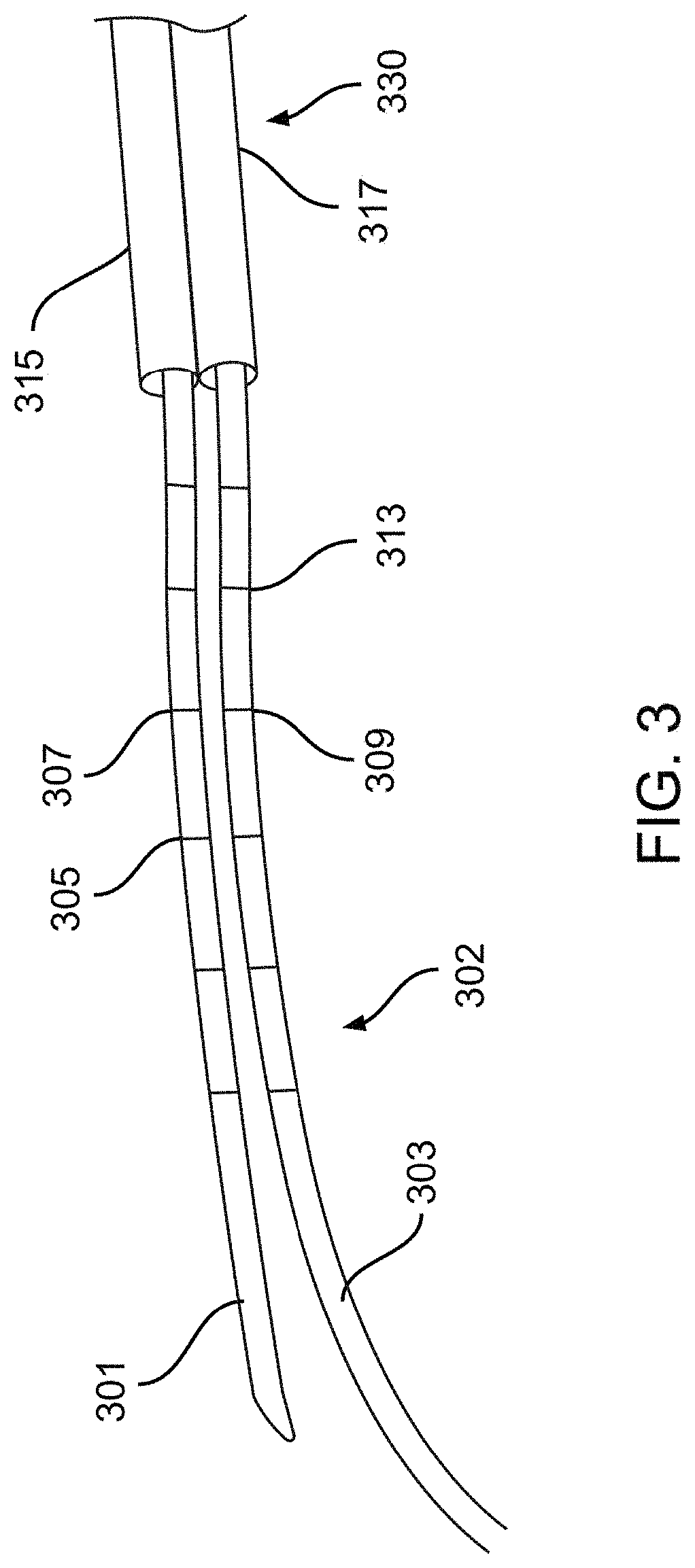Epicardial ablation catheter
a catheter and epidermis technology, applied in the field of epidermis ablation catheters, can solve the problems of unmet needs, local gaps or pores in the cell membrane, occurrence of local gaps or pores, etc., and achieve the effect of increasing contact and reducing the size of the adjustable loop
- Summary
- Abstract
- Description
- Claims
- Application Information
AI Technical Summary
Benefits of technology
Problems solved by technology
Method used
Image
Examples
Embodiment Construction
[0033]Described herein are systems, devices, and methods for selective and rapid application of pulsed electric fields to ablate tissue by irreversible electroporation. Generally, the systems, devices, and methods described herein may be used to generate large electric field magnitudes at desired regions of interest and reduce peak electric field values elsewhere in order to reduce unintended tissue damage. The devices described herein include flexible catheters that may be placed for pulsed electric field ablation of cardiac tissue. In some embodiments, an ablation device may be placed via subxiphoid access or by direct surgical placement into the pericardial space. Proper physical placement and tension applied between an ablation device (e.g., ablation catheter) and tissue to be ablated may ensure targeted and effective electroporation with reduced side effects and user error. For example, a cinch device and fiducials disposed thereon may be used to aid in positioning and verifica...
PUM
 Login to View More
Login to View More Abstract
Description
Claims
Application Information
 Login to View More
Login to View More - R&D
- Intellectual Property
- Life Sciences
- Materials
- Tech Scout
- Unparalleled Data Quality
- Higher Quality Content
- 60% Fewer Hallucinations
Browse by: Latest US Patents, China's latest patents, Technical Efficacy Thesaurus, Application Domain, Technology Topic, Popular Technical Reports.
© 2025 PatSnap. All rights reserved.Legal|Privacy policy|Modern Slavery Act Transparency Statement|Sitemap|About US| Contact US: help@patsnap.com



